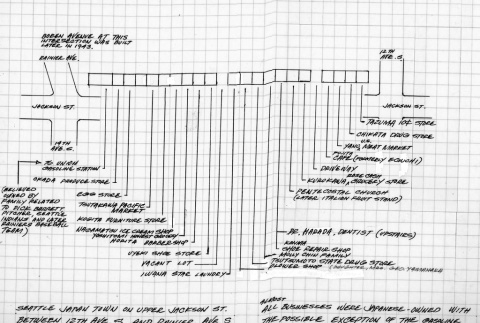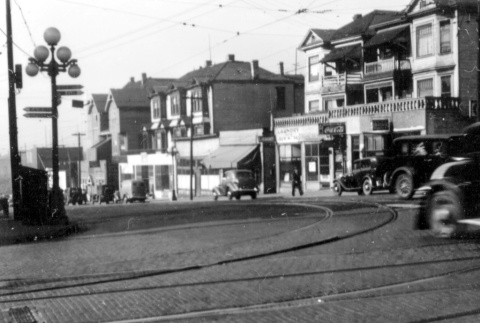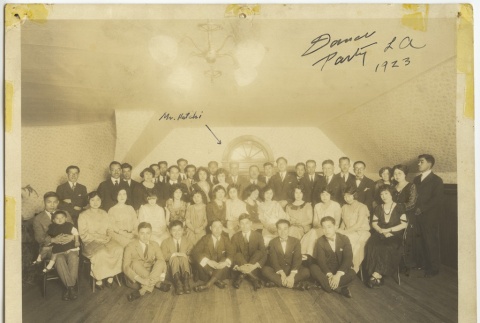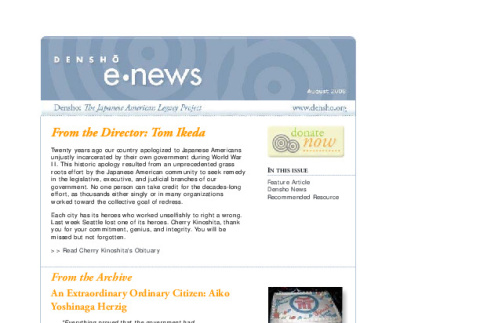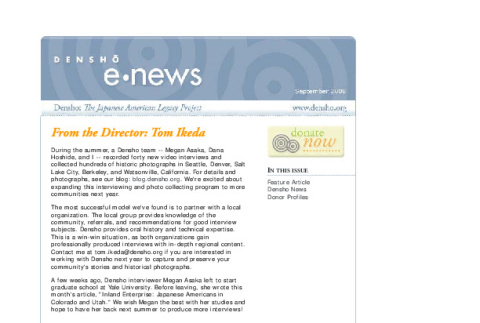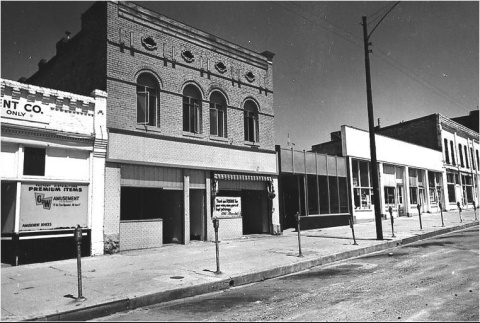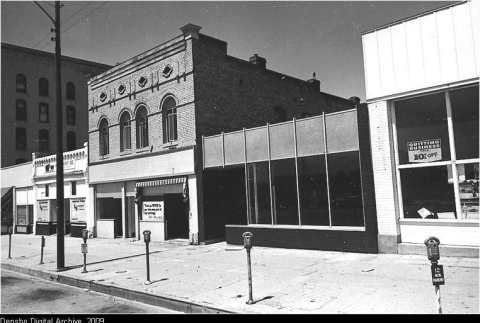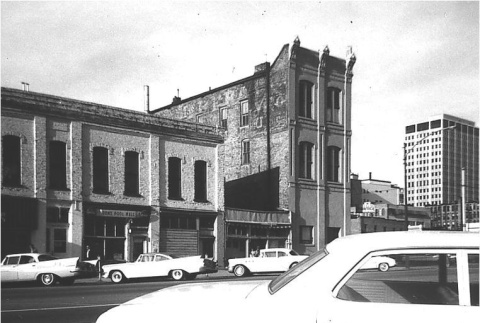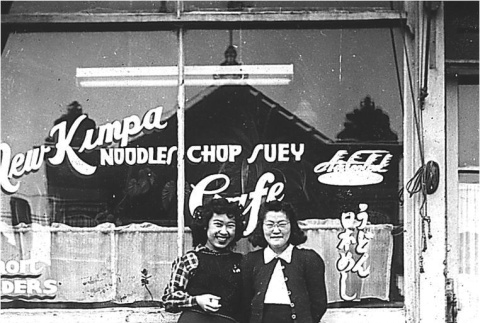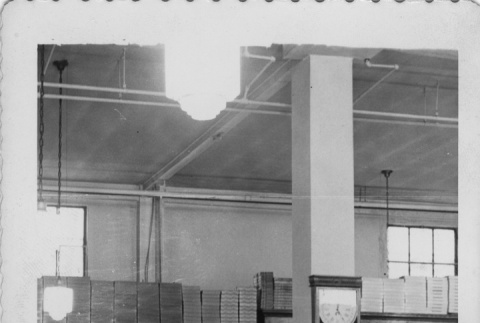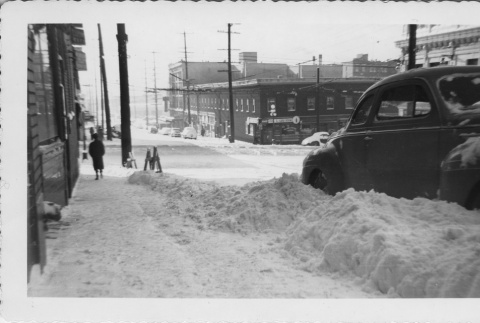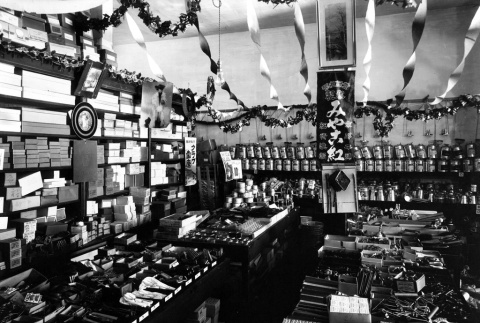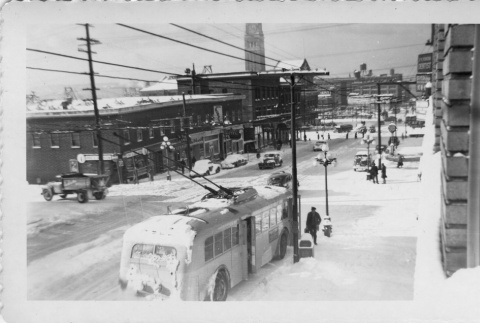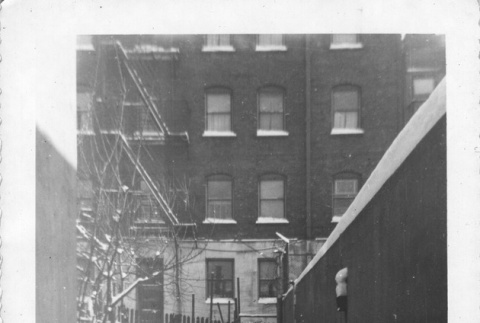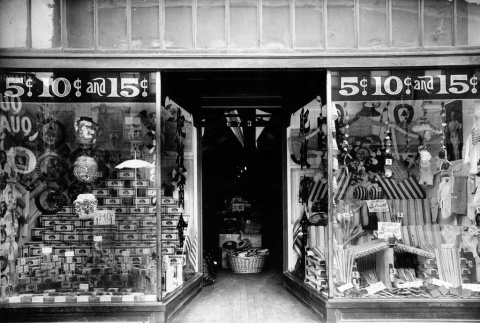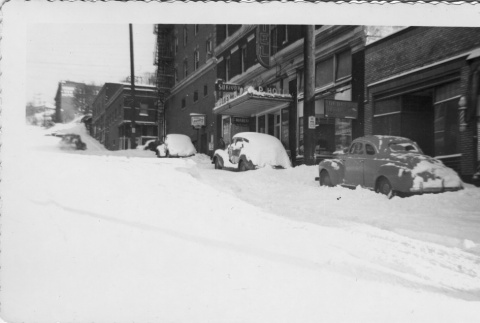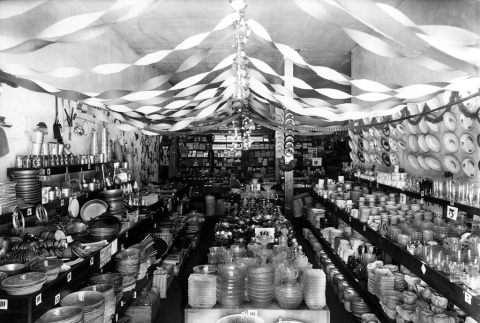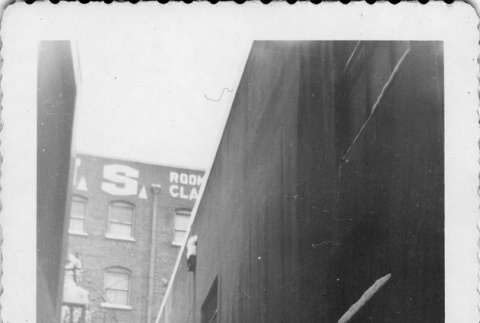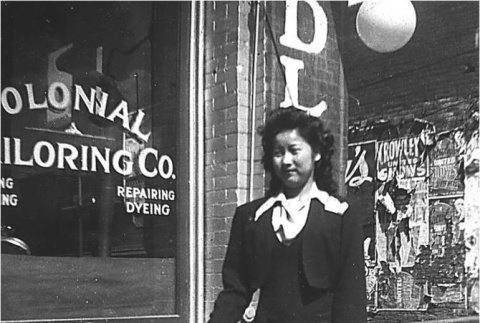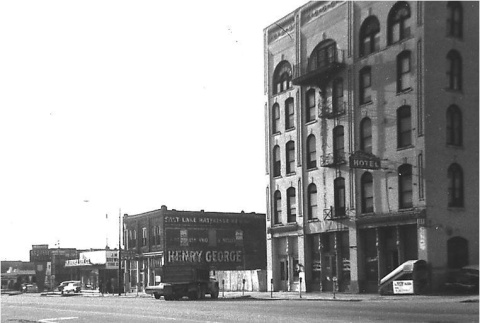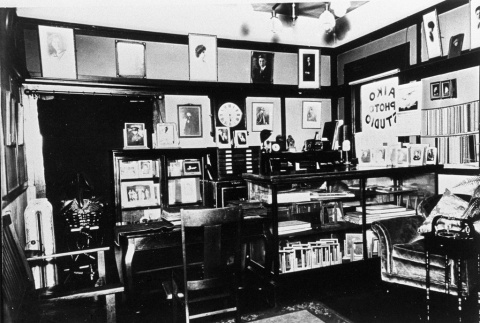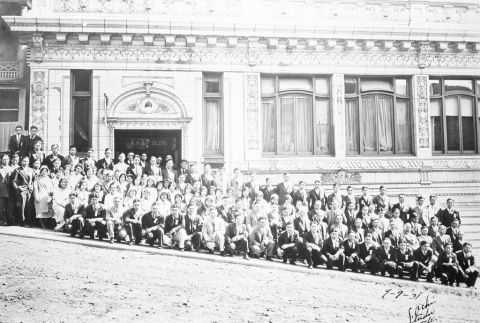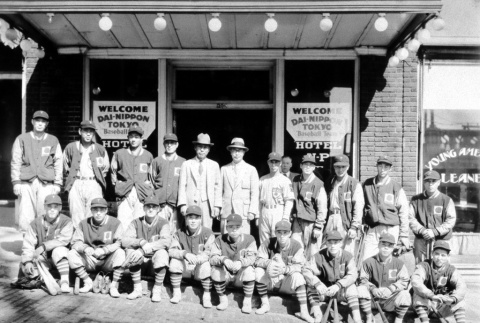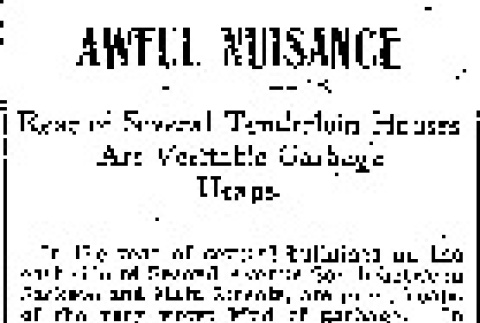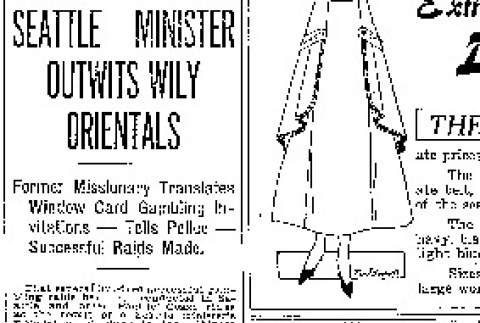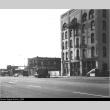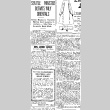Nihonmachi ("Japantowns")
Because of housing and employment discrimination, Japanese Americans tended to cluster in ethnic neighborhoods known as Nihonmachi, or "Japantowns." Living, working, studying, and worshiping in close proximity made for tight-knit communities. With the forced removal of Japanese Americans in the spring of 1942, the bustling Nihonmachis of the West Coast closed down and never fully recovered, even after the war ended.
Community activities
(871)
Nihonmachi ("Japantowns")
(205)
205 items
205 items
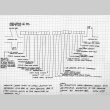
doc
Hand-drawn map of Seattle's Nihonmachi, or Japantown (ddr-densho-24-17)
This map of Nihonmachi, circa 1939, was drawn by Yukio Tazuma. Tazuma's parents owned the Tazuma Ten-Cent Store at 12th Avenue and Jackson Street before World War II. The map shows the many Japanese-owned businesses between 12th Avenue and Rainier Avenue South (upper Jackson Street).
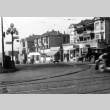
img
View of Nihonmachi (Japantown) (ddr-densho-24-15)
Seattle's Nihonmachi (Japantown) was a vibrant and active community prior to World War II. This view of Nihonmachi was taken from 12th Avenue and Jackson Street.
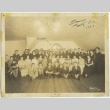
img
Dance party in Little Tokyo, Los Angeles (ddr-densho-242-12)
Caption by Ike Hatchimonji: "Dance Party LA 1923." Caption on reverse: "Little Tokyo, Los Angeles 1923. 'Dance Party.' No other detail."
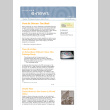
doc
Densho eNews, August 2008 (ddr-densho-431-23)
Article titles: "From the Director," "From the Archive: An Extraordinary Citizen: Aiko Yoshinaga Herzig," "Densho News: Teacher Resources: New Lesson on CD and Online," "2008 Sushi & Sake Fest," "Densho on the Road and in the News," "Recommended Resource: Preserving California's Japantowns."
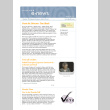
doc
Densho eNews, September 2008 (ddr-densho-431-24)
Article titles: "From the Director," "From the Archive: Inland Enterprise: Japanese Americans in Colorado and Utah," "Densho News: Vote in the Densho Poll," "2008 Sushi & Sake Fest!," "Donor Profiles: Tribute Gifts Help Densho," "Washington Civil Liberties Public Education Program Grant."
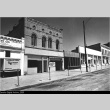
img
Salt Lake City's Japantown (ddr-densho-162-8)
100 South between West Temple and 100 West. This photo was taken just before demolition and construction of Salt Palace convention center.
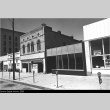
img
Salt Lake City's Japantown (ddr-densho-162-7)
100 South between West Temple and 100 West. This photo was taken just before demolition and construction of Salt Palace convention center.
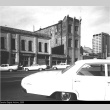
img
Salt Lake City's Japantown (ddr-densho-162-9)
100 South between West Temple and 100 West. This photo was taken just before demolition and construction of Salt Palace convention center.
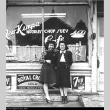
img
New Kimpa Cafe (ddr-densho-162-6)
The New Kimpa Cafe was located in Salt Lake City's Japantown. Pictured are Mary Doi and Kiyoko Nishida.
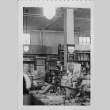
img
Interior of Higo Ten-Cent Store (ddr-densho-16-25)
This photo shows the store's original light fixtures.
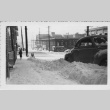
img
Nihonmachi covered in snow (ddr-densho-16-15)
This photo shows Seattle's Nihonmachi or Japantown in the winter.
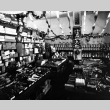
img
Interior of Higo Ten-Cent Store (ddr-densho-16-2)
The Higo Ten-Cent Store, located in Seattle's Nihonmachi (Japantown), was owned and operated by Sanzo and Matsuyo Murakami. Established in the early 1900s, the store sold a wide variety of American- and Japanese-made goods to serve the surrounding Issei and Nisei community.
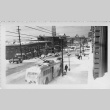
img
Nihonmachi covered in snow (ddr-densho-16-12)
This photo was taken on Jackson Street in Seattle's Nihonmachi or Japantown.
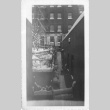
img
Nihonmachi covered in snow (ddr-densho-16-13)
This photo shows Seattle's Nihonmachi or Japantown in the winter.
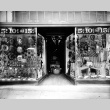
img
Exterior of Higo Ten-Cent Store (ddr-densho-16-1)
Sanzo and Matsuyo Murakami owned and operated the Higo Ten-Cent Store which was located on Weller Street in Seattle's Nihonmachi, or Japantown. The Higo Ten-Cent Store is currently called the Higo Variety Store and continues to be a landmark business in Seattle's International District which was known as Nihonmachi before World War II. The store is …
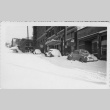
img
Nihonmachi covered in snow (ddr-densho-16-14)
This photo shows Seattle's Nihonmachi or Japantown in the winter.
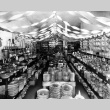
img
Interior of Higo Ten-Cent Store (ddr-densho-16-3)
The Higo Ten-Cent Store, established in the early 1900s by Sanzo Murakami and his wife Matsuyo, is one of the last prewar Japanese American businesses in Seattle's International District, formerly known as Nihonmachi. The store sold a wide variety of American- and Japanese-made goods to the surrounding Issei and Nisei community.
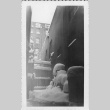
img
Nihonmachi covered in snow (ddr-densho-16-16)
This photo shows Seattle's Nihonmachi or Japantown in the winter.
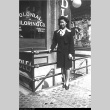
img
Salt Lake City's Japantown (ddr-densho-162-10)
100 South between West Temple and 100 West. This photo was taken just before demolition and construction of Salt Palace convention center.
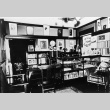
img
Aiko Studio (ddr-densho-20-11)
Aiko Studio, located in Seattle's Nihonmachi area, was one of several photography studios that catered to the Japanese American community before World War II.
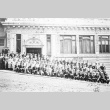
img
JACL Convention (ddr-densho-18-44)
The Japanese American Citizens League (JACL) Convention outside the Jackson Building in Seattle's Nihonmachi.
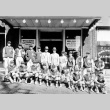
img
Dai Nippon baseball team visiting from Japan (ddr-densho-18-14)
The Dai Nippon baseball team in front of the N-P Hotel in Seattle's Nihonmachi area.
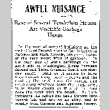
doc
Awful Nuisance. Rear of Several Tenderloin Houses are Veritable Garbage Heaps. (December 12, 1901) (ddr-densho-56-25)
The Seattle Daily Times, December 12, 1901, p. 4
